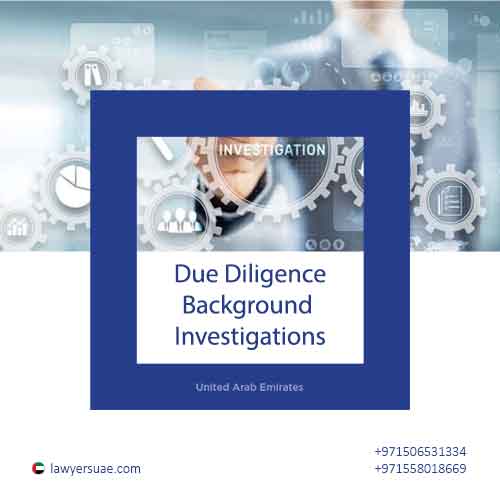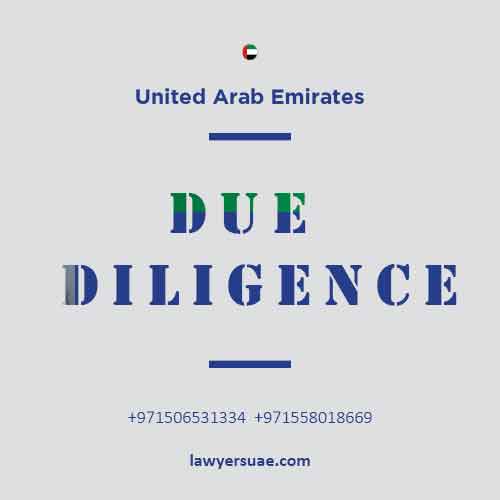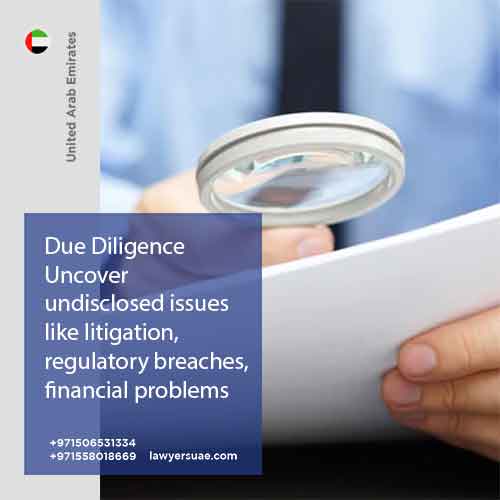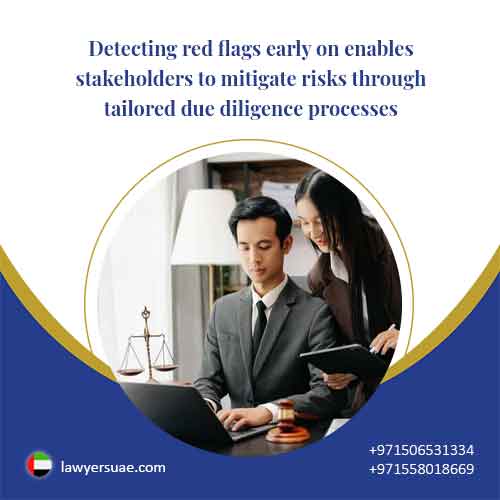Conducting thorough due diligence and background investigations is a crucial component of informed decision-making across various business, legal, and interpersonal contexts. This comprehensive guide covers key definitions, objectives, techniques, sources, analysis methods, applications, benefits, best practices, tools and resources related to the due diligence process.
What is Due Diligence?
- Due diligence refers to the careful investigation and verification of information prior to signing legal contracts, closing business deals, pursuing investments or partnerships, hiring candidates, and other critical decisions.
- It encompasses a range of background checks, research, audits, and risk assessments aimed at uncovering potential issues, liabilities, or risk exposures, including assessing debt collection best practices when evaluating potential business partners or acquisition targets.
- Due diligence moves beyond basic screenings to include more rigorous reviews of financial, legal, operational, reputational, regulatory, and other domains, such as potential money laundering activities requiring a lawyer for money laundering.
- The process enables stakeholders to confirm facts, validate information provided, and gain deeper insight into a business or individual prior to establishing relationships or finalizing transactions.
- Appropriate due diligence is crucial for mitigating risks, preventing losses, ensuring compliance, and making strategic decisions based on accurate, comprehensive intelligence.
Objectives of Due Diligence Investigations
- Validate information provided by companies and candidates
- Uncover undisclosed issues like litigation, regulatory breaches, financial problems
- Identify risk factors and red flags early on, including potential workplace hazards that could lead to workers compensation examples like back injuries from improper lifting.
- Evaluate capabilities, stability and viability of partners
- Verify credentials, qualifications and track record of individuals
- Protect reputation and prevent legal liabilities
- Meet regulatory requirements for AML, KYC, etc.
- Support investment, hiring, and strategic decisions
Types of Due Diligence Investigations
- Financial and operational due diligence
- Background checks and reference checks
- Reputational due diligence and media monitoring
- Compliance reviews and regulatory screening
- Third party risk assessments of partners and vendors
- Forensic investigations for fraud and misconduct
Industry professionals customize scope based on specific transaction types and decision needs. Example areas of focus include:
- Buy-side/sell-side mergers and acquisitions
- Private equity and venture capital deals
- Commercial real estate investments
- Onboarding high-risk clients or vendors
- Partner screening in joint ventures
- C-suite and leadership hires
- Trusted advisor roles
Due Diligence Techniques and Sources
Comprehensive due diligence leverages both online investigative tools and offline information sources, combined with human analysis and expertise.
Public Records Searches
- Court filings, judgments and litigation
- UCC filings to identify debts and loans
- Real estate ownership and property liens
- Corporate records – formations, mortgages, trademarks
- Bankruptcy proceedings and tax liens
- Marriage/divorce records
Database Access
- Credit reports from Experian, Equifax, Transunion
- Criminal convictions and sex offender status
- Civil lawsuit histories
- Professional licenses status and disciplinary records
- Motor vehicle records
- Utility records – address history
- Death records/probate filings
Financial Information Analysis
- Historical financial statements
- Independent audit reports
- Analysis of key financial ratios and trends
- Review of operating budgets
- Forecasting assumptions and models
- Capitalization tables
- Credit reports and risk ratings
- Payment history data
Online Investigations
- Social media monitoring – sentiment, behavior, relationships
- Domain registrations linking individuals and businesses
- Dark web surveillance for data leaks
- Search engine results pages (SERP) analysis
- Review of e-commerce sites and mobile apps
Red Flag Identification
Detecting red flags early on enables stakeholders to mitigate risks through tailored due diligence processes.
Financial Red Flags
- Poor liquidity, overleveraging, inconsistencies
- Late or non-existent financial reporting
- High receivables, low margins, missing assets
- Impaired auditor opinions or advisories
Leadership & Ownership Issues
- Disqualified directors or “red flagged” shareholders
- History of failed ventures or bankruptcies
- Opaque, complex legal structures
- Lack of succession planning
Regulatory and Compliance Factors
- Prior sanctions, lawsuits or consent orders
- Noncompliance with licensing and data security protocols
- GDPR deficiencies, environmental violations
- Exposure in heavily regulated sectors
Reputational Risk Indicators
- Increased customer churn rates
- Social media negativity and PR crises
- Poor employee satisfaction
- Sudden changes in rating agency scores
Applications of Due Diligence Investigations
Due diligence plays a crucial role across multiple functions and processes:
Mergers and Acquisitions
- Risk exposures, deal pricing, value creation levers
- Culture alignment, retention risks, integration planning
- Mitigating post-merger litigation
Vendor and Supplier Assessments
- Financial sustainability, production quality, and scalability
- Cybersecurity, compliance, and regulatory practices
- Business continuity planning, insurance coverage
Client and Partner Screening
- Anti-money laundering (AML) requirements for Know Your Customer (KYC) rules
- Sanctions list review – SDN, PEP connections
- Adverse litigation and enforcement actions
Talent Hiring
- Employee background checks, employment history
- Reference checks from former supervisors
- Validating educational credentials
Other Applications
- New market entry decisions and country risk analysis
- Product safety and liability prevention
- Crisis preparation and communications
- Intellectual property protection
Due Diligence Best Practices
Adhering to core standards helps ensure smooth and successful due diligence:
Ensure Transparency and Consent
- Outline process, scope of inquiry and methods upfront
- Maintain confidentiality and data privacy through secure channels
- Obtain necessary written approvals beforehand
Employ Multidisciplinary Teams
- Financial and legal experts, forensic accountants
- IT infrastructure and compliance personnel
- External due diligence consultants
- Local business partners and advisors
Adopt Risk-Based Analysis Frameworks
- Weigh quantitative metrics and qualitative indicators
- Incorporate probability, business impact, detection likelihood
- Update assessments continuously
Customize Level and Focus of Review
- Use risk scoring methods tied to relationship or transaction value
- Target higher scrutiny for higher dollar investments or new geographies
Utilize Iterative Approach
- Begin with core screening, expand to comprehensive as warranted
- Drill down on specific areas requiring clarification
Benefits of Due Diligence Investigations
While due diligence involves sizable investments of time and resources, the long-term payoffs outweigh the costs. Key advantages include:
Risk Mitigation
- Lower probability of adverse events occurring
- Quicker response times to address issues
- Minimized legal, financial and reputational liabilities
Informed Strategic Decisions
- Insights to refine target selection, valuations and deal terms
- Identified value creation levers, revenue synergies
- Aligned visions between merger partners
** Trust and Relationship Building**
- Confidence in financial standing and capabilities
- Shared transparency expectations
- Foundation for successful integrations
Regulatory Compliance
- Adhering to legal and industry regulations
- Avoiding fines, lawsuits and license revocations
Crisis Prevention
- Proactively addressing threats
- Developing contingency response plans
- Maintaining business continuity
Due Diligence Resources and Solutions
Various service providers offer software platforms, investigatory tools, databases and advisory support for due diligence processes:
Software
- Cloud-based virtual data rooms by firms like Datasite and SecureDocs
- Due diligence project coordination systems – DealCloud DD, Cognevo
- Risk monitoring dashboards from MetricStream, RSA Archer
Professional Services Networks
- “Big Four” audit and advisory firms – Deloitte, PwC, KPMG, EY
- Boutique due diligence shops – CYR3CON, Mintz Group, Nardello & Co.
- Private investigation partners sourced globally
Information and Intelligence Databases
- Adverse media alerts, regulatory filings, enforcement actions
- Politically-exposed persons data, sanctioned entities lists
- Local and international company registries
Industry Associations
- Global Investigations Network
- International Due Diligence Organization
- Overseas Security Advisory Council (OSAC)
Key Takeaways
- Due diligence encompasses background checks aimed at risk detection prior to major decisions
- Objectives include information validation, issue identification, benchmarking capabilities
- Common techniques involve public records searches, custom verifications, financial analyses
- Recognizing red flags early enables risk mitigation through diligence processes
- Due diligence plays a critical role in strategic functions like M&A, vendor selection, hiring
- Benefits include informed decisions, risk reduction, relationship building and regulatory adherence
- Following best practices ensures efficient, high-quality due diligence execution
With the potential to yield transformative upsides across operational, legal and financial domains, the returns on due diligence investments make the costs well worthwhile. Utilizing the latest tools and techniques while adhering to core standards enables organizations to maximize value.
Frequently Asked Due Diligence Questions
What are some key areas of focus for financial and operational due diligence?
Key areas encompass historical financial statement analysis, quality of earnings assessments, working capital optimization, forecasting model review, benchmarking, site visits, inventory analysis, IT infrastructure evaluation, and insurance adequacy confirmation.
How does due diligence create value in mergers and acquisitions?
Due diligence enables buyers to validate seller claims, Identify value creation levers like revenue expansion and cost synergies, strengthen negotiation positions, refine pricing, speed up integration post-close, and minimize adverse surprises or issues.
What techniques help investigate fraud risks through due diligence?
Tools like forensic accounting, anomaly detection, surprise audits, statistical sampling methods, analytics, confidential hotlines, and behavioral analysis help assess fraud likelihood. Background checks on management, incentives evaluation, and whistleblower interviews provide additional signals.
Why is due diligence important when onboarding third party partners?
Reviewing financial sustainability, compliance frameworks, security protocols, business continuity plans, and insurance coverage enables organizations to gauge inherent risks in vendor and supplier networks based on robust criteria.
What resources are available for international background checks?
Specialized investigation firms maintain global databases, in-country record access, multilingual research capabilities, and boots-on-the-ground local partners to source international background checks spanning litigation review, credential verification, media monitoring, and regulatory screening.
For urgent calls and WhatsApp +971506531334 +971558018669





